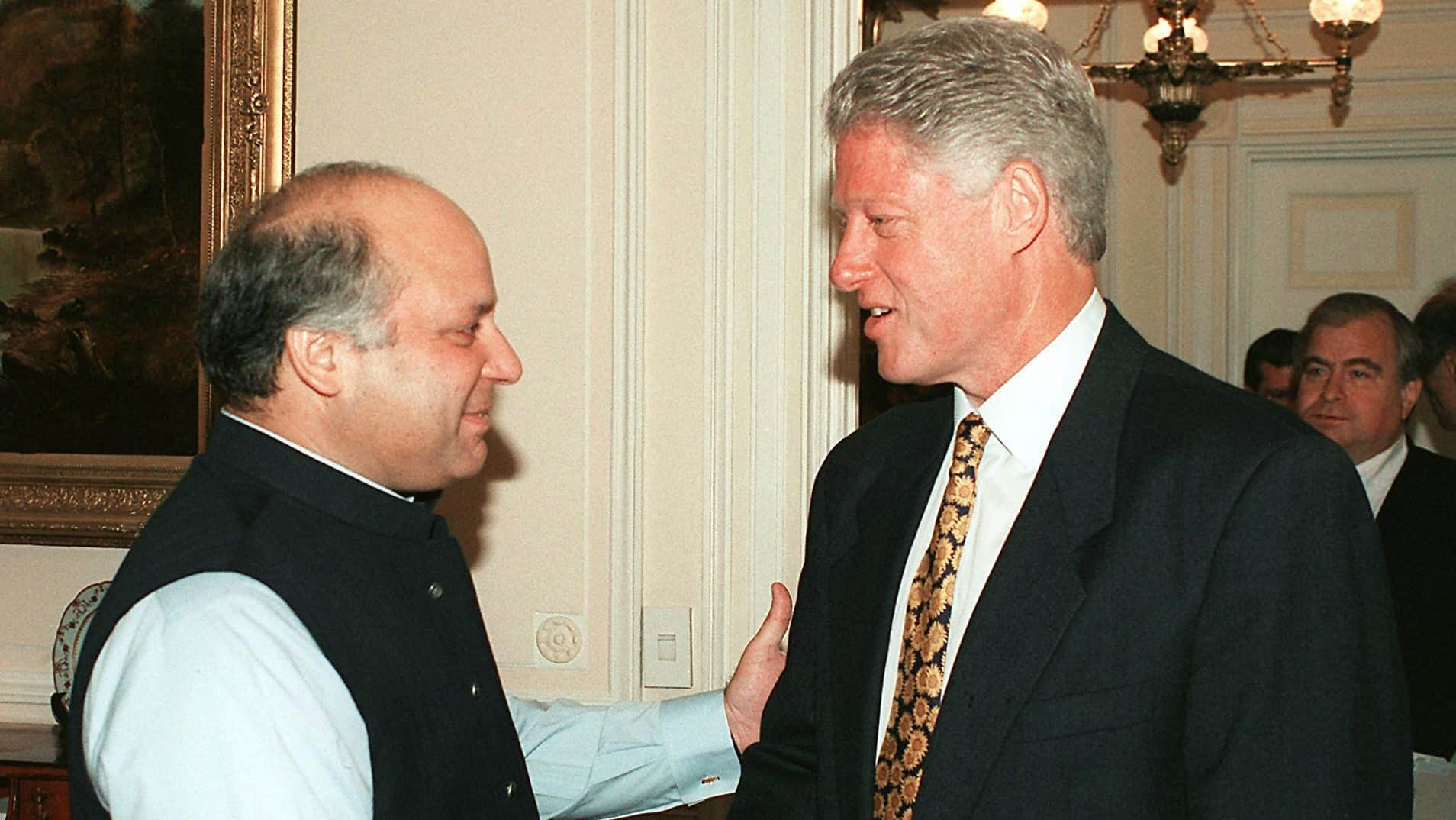



As India and Pakistan once again find themselves stepping back from the brink of a full-blown war following a ceasefire deal brokered through DGMO-level talks, which Donald Trump has also attributed to himself, echoes of a similar high-stakes intervention from the past resonate strongly — that of US President Bill Clinton during the 1999 Kargil conflict.
The 1999 Kargil Crisis: A Breach of TrustThe Kargil War was sparked in May 1999 when Pakistani soldiers and Pak-sponsored terrorists occupied key Indian positions in the Kargil sector of Jammu and Kashmir. The incursion came just months after both countries had conducted nuclear tests in 1998 and, notably, after the Lahore Declaration — a peace initiative signed by then-Indian Prime Minister Atal Bihari Vajpayee and Pakistan’s Prime Minister Nawaz Sharif in February 1999.
The Pakistani intrusion into Indian territory was seen by New Delhi as a grave betrayal, while Islamabad initially denied involvement, claiming the fighters were “Kashmiri militants”. However, it later became clear that Pakistani troops were involved under the direction of Pakistan Army chief General Pervez Musharraf, reportedly without Sharif’s full knowledge.
Clinton’s Critical InterventionBy late June 1999, the situation had deteriorated rapidly, with both nuclear-armed neighbours locked in a bloody high-altitude conflict. India maintained a restrained but determined military response — with strict instructions not to cross the Line of Control (LoC) — while international concern grew about the potential for nuclear escalation.
Sensing the risk of a full-scale war and nuclear confrontation, US President Bill Clinton stepped in behind the scenes. Clinton had maintained cordial relations with both Vajpayee and Sharif, and now found himself thrust into the role of crisis manager.
The July 4 Summit: A Turning PointOn July 4, 1999, Nawaz Sharif flew to Washington DC for a hastily arranged meeting with President Clinton. The trip, reportedly made without the full backing of the Pakistani military establishment, was a desperate bid to seek American intervention or at least a face-saving solution.
 File photo of the then US President Bill Clinton greeting Pakistani Prime Minister Nawaz Sharif (L) at Blair House in Washington, DC (04 July, 1999).
File photo of the then US President Bill Clinton greeting Pakistani Prime Minister Nawaz Sharif (L) at Blair House in Washington, DC (04 July, 1999).Clinton, however, remained firm: he made it clear that the US would not support Pakistan’s position and that any resolution must involve a full withdrawal of Pakistani forces from Indian territory. Clinton also made it clear that Pakistan's actions were a breach of international norms and agreements — particularly the LoC, which had been the basis of peace arrangements since the Simla Agreement of 1972.
After hours of intense discussions, a joint statement was issued in which Pakistan agreed to "take concrete steps for the restoration of the Line of Control in accordance with the Simla Agreement." This was effectively a diplomatic way of saying Pakistan would withdraw.
Sharif’s return to Pakistan was fraught with political peril. The military, led by General Musharraf, was reportedly furious. Within three months, Musharraf deposed Sharif in a bloodless coup, becoming Pakistan’s de facto leader.
For Clinton, the episode was a major foreign policy success. He had not only defused a nuclear flashpoint but also reinforced the principle that the LoC could not be redrawn by force. His mediation is still credited with preventing a potentially catastrophic war in South Asia.
Lessons for TodayThe recent ceasefire announcement between India and Pakistan —following latter’s DGMO approaching his Indian counterpart, and possibly influenced by global diplomatic pressure — draws parallels to 1999 in both form and caution.
While the Clinton-era intervention was a dramatic display of presidential diplomacy, the current situation reflects quieter, institutional backchannels — still underscoring the critical role international actors play in South Asia’s volatile security dynamics.
Unlike the public posturing seen today, Clinton’s intervention was marked by quiet but firm diplomacy that ultimately forced Pakistan’s Prime Minister Nawaz Sharif into a humiliating climbdown. The episode remains one of the most consequential examples of US pressure defusing an Indo-Pak crisis — a sharp contrast to today’s self-congratulatory claims, and a reminder of how real diplomacy is often conducted away from the spotlight.
It also reiterates a consistent global norm that has remained since Kargil: no tolerance for attempts to alter the LoC through force or terror proxies.
As India today draws red lines by declaring any future terror attack an "act of war," and Pakistan claims to have "strived for peace without compromising sovereignty," the memory of Kargil — and the American mediation that helped end it — remains a stark reminder of how close the region can come to disaster, and how fragile peace still is.
Discover the latest Business News, Sensex, and Nifty updates. Obtain Personal Finance insights, tax queries, and expert opinions on Moneycontrol or download the Moneycontrol App to stay updated!
Find the best of Al News in one place, specially curated for you every weekend.
Stay on top of the latest tech trends and biggest startup news.